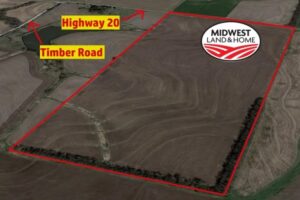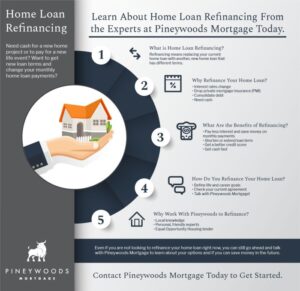
Triple net lease (NNN) explained introduces a unique investment strategy that can be both lucrative and complex. This lease structure shifts the burden of property expenses such as taxes, insurance, and maintenance onto the tenant, making it an attractive option for landlords seeking stable income. Understanding the fundamentals of NNN leases is crucial for both investors and tenants to navigate the commercial real estate landscape effectively.
As we delve deeper into the specifics of a Triple Net Lease, we will explore its components, the benefits and drawbacks of engaging in such agreements, and how they compare to other commercial leases. Additionally, this guide will highlight the vital role real estate agents play in facilitating these transactions, along with insights into investing in NNN properties for a promising financial return.
Understanding Triple Net Lease (NNN)
A Triple Net Lease (NNN) is a popular type of commercial lease agreement where the tenant is responsible for not only the rent but also for covering most of the property expenses. This includes property taxes, insurance, and maintenance costs. Understanding the components and implications of a NNN lease is essential for both landlords and tenants, as it impacts their financial responsibilities and investment strategies.In a Triple Net Lease, the responsibilities are divided among the landlord and tenant in a way that creates a clear understanding of financial obligations.
The three “nets” refer to the following components:
1. Property Taxes
The tenant pays for any property taxes levied on the leased property, which can fluctuate based on local tax rates.
2. Insurance
The tenant is responsible for obtaining and maintaining insurance for the property, ensuring that both the structure and the landlord’s interests are protected.
3. Maintenance and Repairs
The tenant must handle the upkeep of the property, which includes both routine maintenance and necessary repairs. This can encompass everything from landscaping to structural repairs.
Benefits and Drawbacks of a NNN Lease
When considering a Triple Net Lease, it’s essential to weigh the benefits against potential drawbacks. This helps landlords and tenants make informed decisions. Benefits:
Predictable Costs
For landlords, NNN leases offer predictable income as tenants bear the variable costs associated with property management.
Less Management Involvement
Landlords can minimize their involvement in day-to-day management, as tenants are responsible for most operational tasks.
Attractive to Investors
NNN properties can be appealing to investors looking for long-term, stable income without the hassles of property management. Drawbacks:
Higher Risk for Tenants
Tenants may face increased financial responsibilities, especially in cases of unexpected expenses or property damage.
Potential for Increased Expenses
Fluctuating property taxes or insurance premiums can lead to uncertain long-term costs for tenants.
Limited Control for Landlords
While tenants manage expenses, landlords may have limited control over the property’s condition and maintenance standards.
Comparison with Other Types of Commercial Leases
Understanding how Triple Net Leases differ from other lease types can provide clarity in navigating commercial real estate agreements.
Gross Lease
In a gross lease, the landlord covers most or all property-related expenses, meaning tenants pay a flat rental amount without additional costs. This can be beneficial for tenants who prefer predictable monthly expenses.
Modified Gross Lease
This hybrid lease requires the landlord to cover certain expenses while the tenant pays for others. For example, the landlord may cover property taxes while the tenant pays for insurance and maintenance. This structure offers a balance between shared responsibilities.
Absolute NNN Lease
A variation of the NNN lease, an absolute NNN lease places all risk and responsibilities on the tenant, including the possibility of property destruction. This type is often favored by investors looking for minimal risk.
“Understanding the structure and obligations of a NNN lease is crucial for both tenants and landlords, influencing investment strategies and financial planning.”
Role of Real Estate Agents in NNN Leases
Real estate agents play a crucial role in the process of navigating Triple Net Leases (NNN), guiding both tenants and landlords through the complexities involved. Their expertise not only simplifies the leasing process but also ensures that both parties’ interests are effectively represented. Understanding the dynamics of NNN leases requires specialized knowledge, making the role of real estate agents indispensable.Real estate agents assist their clients in various essential ways when dealing with NNN leases.
They help identify suitable properties, analyze lease terms, and negotiate favorable conditions. Their familiarity with market trends and local property laws enables them to provide valuable insights, ensuring that clients make informed decisions.
Key Skills for Negotiating NNN Terms
To effectively negotiate NNN lease terms, real estate agents must possess specific skills that facilitate successful transactions. These skills are critical for ensuring that clients achieve optimal outcomes in their leasing agreements. Here are some of the most important skills:
- Market Knowledge: Agents need to stay informed about the local real estate market, including comparable lease rates and property values, to negotiate effectively.
- Analytical Skills: The ability to analyze lease documents, identify potential pitfalls, and suggest favorable amendments is vital to protecting clients’ interests.
- Negotiation Skills: Strong negotiation skills are essential for securing favorable lease terms and handling objections from the other party.
- Communication Skills: Clear and effective communication is necessary for conveying complex lease terms to clients and facilitating discussions with landlords.
- Problem-Solving: Agents should be able to think critically and develop creative solutions to any issues that may arise during the negotiation process.
Best Practices for Working with Clients Interested in NNN Properties
When assisting clients interested in NNN properties, real estate agents should adhere to best practices that enhance client satisfaction and successful outcomes. Implementing these best practices can streamline the leasing process and foster positive relationships between agents and their clients:
- Educate Clients: Provide comprehensive information about NNN leases, including responsibilities for maintenance, taxes, and insurance, to ensure clients understand what they are committing to.
- Conduct Thorough Market Research: Gather data on recent lease transactions and market trends to present clients with a clear picture of their options.
- Perform Property Inspections: Schedule inspections to assess the condition of the property and identify any potential issues that could impact the lease agreement.
- Draft Clear Lease Agreements: Ensure that all lease terms are clearly defined, including any contingencies, to avoid misunderstandings in the future.
- Stay Accessible: Maintain open lines of communication with clients throughout the leasing process, offering support and addressing concerns promptly.
“A well-informed client is more likely to make confident decisions, leading to successful long-term leasing outcomes.”
Investment in NNN Properties

Investing in Triple Net Lease (NNN) properties presents a unique opportunity for investors seeking stable income streams with minimal management responsibilities. These investments are particularly appealing due to their predictable cash flow, often backed by long-term tenants with established business operations. Understanding the financial dynamics of NNN properties is crucial for any prospective investor.Financial aspects of investing in NNN properties revolve around several key factors, including the lease structure, tenant quality, and market conditions.
NNN leases typically shift the responsibility for property expenses—such as taxes, insurance, and maintenance—to the tenant, which reduces the investor’s burden and enhances cash flow stability. Additionally, these properties often have long lease terms and are occupied by creditworthy tenants, further mitigating risk. Investors can expect lower vacancy rates and a consistent return on investment, making NNN properties a sought-after choice in commercial real estate.
Checklist for Evaluating Return on Investment for NNN Properties
Evaluating the potential return on investment (ROI) for NNN properties requires a thorough analysis of various financial indicators. The following checklist serves as a guide to assess the viability and profitability of an NNN property investment:
- Tenant Creditworthiness: Review the tenant’s financial health, credit rating, and business history to determine reliability.
- Lease Terms: Examine the length of the lease and renewal options, as longer leases typically provide greater stability.
- Location Quality: Assess the property’s location for accessibility, foot traffic, and demographic trends that could impact tenant performance.
- Market Trends: Analyze local real estate market trends, including supply and demand dynamics, to predict potential appreciation.
- Expense Structure: Ensure clarity on the allocation of expenses covered by the tenant to accurately estimate net profitability.
- Cap Rate: Calculate the capitalization rate based on the expected net operating income (NOI) to evaluate overall investment yield.
Guide for Buyers on Evaluating NNN Lease Commercial Properties
When considering the acquisition of commercial properties with NNN leases, buyers should focus on specific criteria that influence long-term success. This guide highlights essential factors to evaluate:
- Property Condition: Conduct a thorough inspection to identify any potential maintenance issues that may arise during the lease term.
- Tenant Business Model: Understand the tenant’s industry and business model to gauge potential risks and growth opportunities.
- Lease Structure Details: Review specific lease provisions, including rent escalations and terms for tenant responsibilities.
- Exit Strategy: Contemplate the long-term exit strategy, including potential resale value and market demand for the property type.
- Financial Projections: Analyze projected cash flows and returns based on existing lease agreements and market conditions.
Closure

In conclusion, understanding the intricacies of Triple net leases (NNN) can significantly impact your investment decisions and tenant relationships. By comprehensively analyzing the terms, benefits, and potential pitfalls, both landlords and tenants can make informed choices that align with their financial goals. Whether you are a seasoned investor or a newcomer in the commercial real estate world, grasping the NNN lease framework will empower you to maximize your opportunities and navigate challenges effectively.
Essential Questionnaire
What are the primary responsibilities of a tenant in a Triple net lease?
A tenant is responsible for covering property taxes, insurance, and maintenance costs, in addition to the base rent.
Can a Triple net lease be negotiated?
Yes, the terms of a Triple net lease can often be negotiated between the landlord and tenant, depending on the market conditions and the property.
What is the typical duration of a Triple net lease?
Triple net leases typically range from 5 to 20 years, depending on the agreement between parties involved.
Are Triple net leases only for commercial properties?
While commonly used for commercial properties, Triple net leases can also apply to certain types of residential properties, though this is less common.
What should investors consider before investing in NNN properties?
Investors should evaluate the financial stability of the tenant, the property’s location, and potential return on investment before committing to NNN properties.





